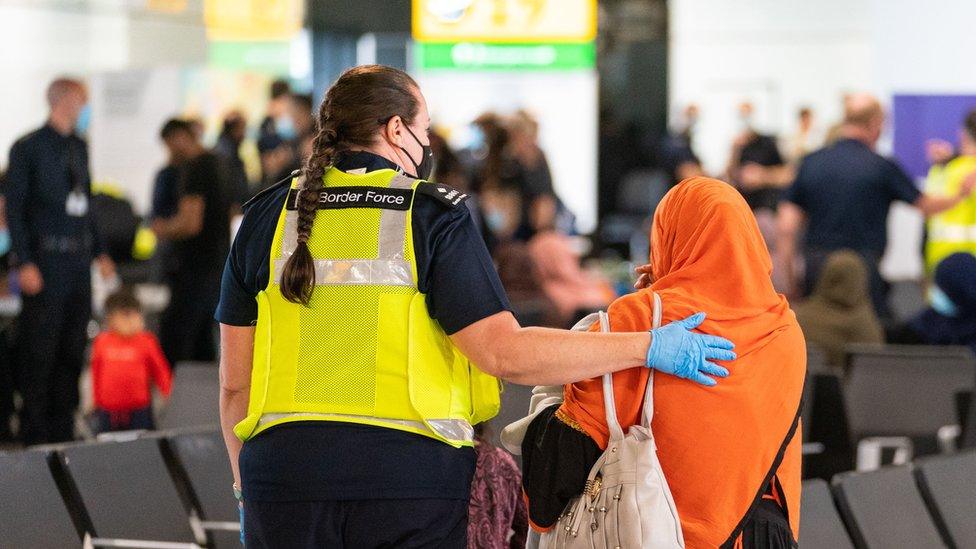Council calls for aid amid Glasgow refugee housing concerns
- Published
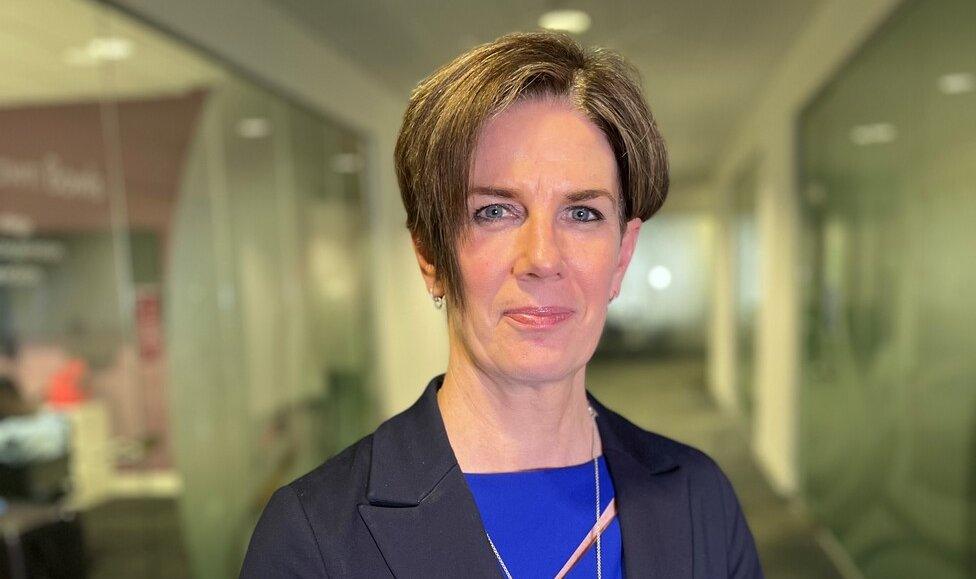
Susanne Millar said the current housing plans for refugees were not sustainable
Glasgow is facing a refugee housing emergency unless it is given financial aid by the UK government, according to the council's homelessness services.
The city expects to see more than 1,400 homelessness applications from people granted asylum before the end of 2023.
The UK government said it offered "ample support" to refugees granted leave to remain.
Over October, November and December 2022, the council processed around 1,500 homelessness applications.
This number is expected to rise this year and, with the additional 1,400 applications from people granted asylum, the overall number of homelessness applications will nearly double.
The Scottish government has written to the Home Office calling for "urgent provision of funding to local authorities" to deal with the surge in applications.
In a bid to cut the lengthy backlog of asylum claims, the UK government announced plans this year to streamline the application process for claimants from Afghanistan, Eritrea, Libya, Syria and Yemen.
Some claimants from Sudan are also being considered under the new process.
Glasgow is the main dispersal city in Scotland for successful asylum seekers.
'An emergency for us'
Susanne Millar, chief officer of the city's health and social care partnership (HSCP) which runs homelessness services, says additional costs of £26m in two months is "one of the biggest challenges ever faced" by the local authority.
Glasgow HSCP estimates 2,500 applications will be considered before the end of December.
Of those, around 1,400 successful claims are expected to lead to homelessness claims after being asked to leave Home Office accommodation.
Ms Millar said the plans were not "financially sustainable" and called on more funding from the Home Office.
She said: "We appreciate the Home Office is looking to save money, but that cannot be at the cost of local government.
"For us here in the city, if the Home Office delivers on the numbers that they've set out, then this would be an emergency for us."
Council homelessness services said the additional cost of housing refugees under the streamlined process could reach £79m by March 2025.
Glasgow's temporary housing stock currently has a shortfall of around 1,600 properties.
BBC Scotland sat in on a housing consultation with the Scottish Refugee Council for a Sudanese man named Mohammed.
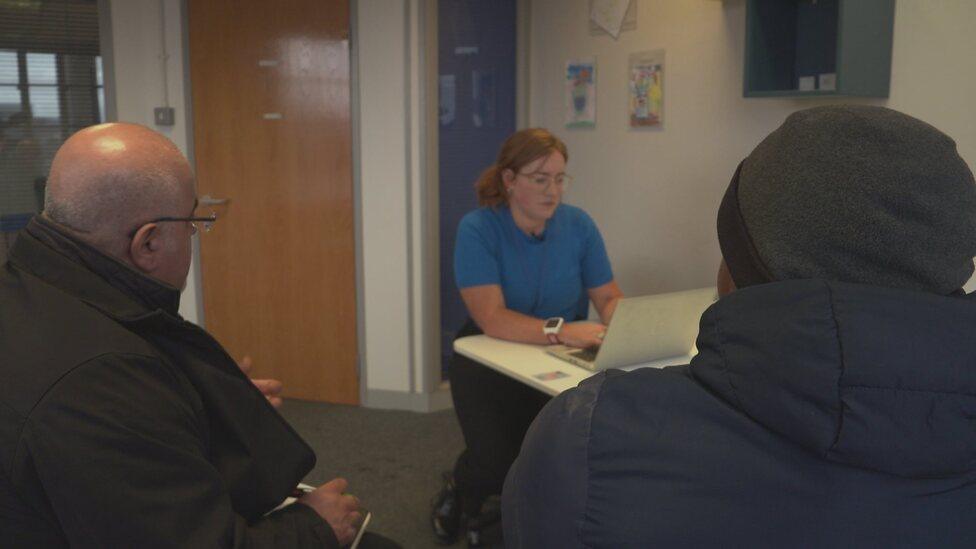
Mohammed (right) during his consultation with Robyn Dunbar-Smith of the Scottish Refugee Council and an interpreter
The 33-year-old was granted asylum in late September and left his Home Office property.
But due to a lack of available accommodation, staff said he was "street homeless" for around four weeks.
Adviser Robyn Dunbar-Smith was unable to secure a place during the consultation.
She told BBC News: "Hopefully the out-of-hours service at the council can provide accommodation for the night.
"But to be honest, with the [housing] shortage at the moment, I don't know how likely that is."

'You have another journey again'
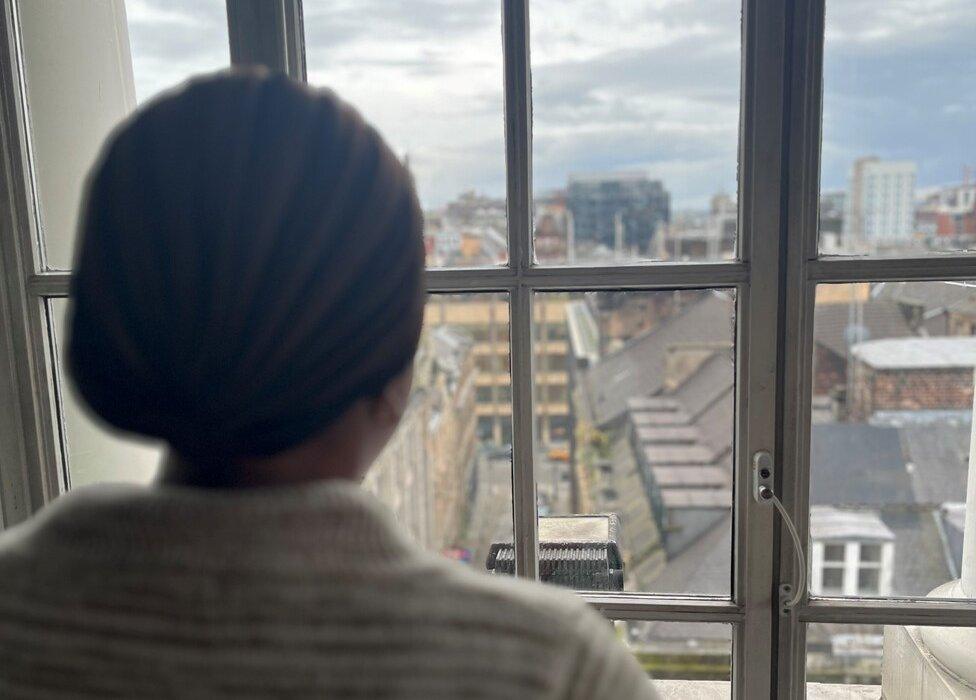
Sally has faced a number of barriers while seeking safe accommodation for her family
Sally is a refugee who was granted asylum status in February this year.
The 40-year-old mother feared persecution in her home country and entered the asylum system five years ago.
However, after being given leave to remain in the UK, Sally was faced with eviction from a property provided by the Home Office.
She and her children waited eight months for council-provided temporary housing while facing the prospect of an eviction case at Glasgow Sheriff Court.
Fortunately, she was able to secure temporary accommodation three weeks ago.
She said "Sometimes when I wake up, all day I have a headache.
"For more than five years, you are in one process. You finish that process and then you have another journey again.
"I say to myself, 'I don't know why I am facing all this.'"

The Scottish Refugee Council told BBC Scotland News it had already seen an increase in refugees granted asylum looking for support with housing.
Refugee integration adviser Eilidh McDermott said the projected increase in positive decisions would be "really hard to manage".
"Visibly, we are getting a huge amount of emergency presentations in our offices," she said.
"Families or individuals come to us on a daily basis with no accommodation for the night.
"Those are families who have been out in the street all day with suitcases, waiting for temporary accommodation to become available."
The Home Office said it "encourages individuals to make their onward plans as soon as possible after receiving their decision".
A spokesperson said: "Homelessness in Scotland is ultimately a devolved matter for the Scottish government, but we offer ample support once claims have been granted through Migrant Help, access to the labour market and advice on applying for Universal Credit."
The spokesperson said decommissioning asylum hotels would "help to relieve pressures on local services and provide a boost to the local economy".
They continued: "The Home Office continues to work closely with accommodation providers and local authorities to manage the exit process in a way which limits the impact on partners and service users alike."
- Published25 October 2023

- Published25 October 2023
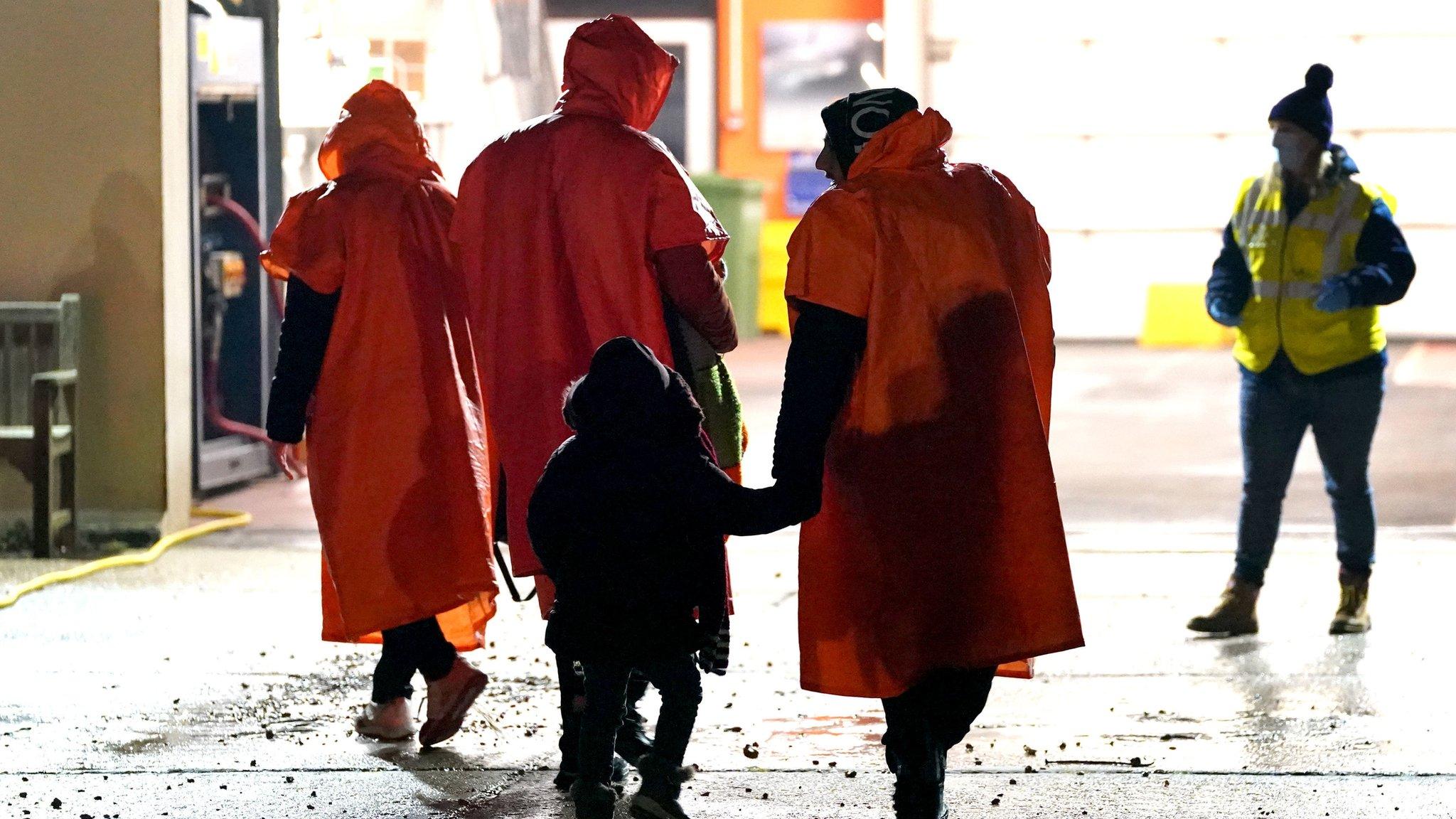
- Published12 October 2023
